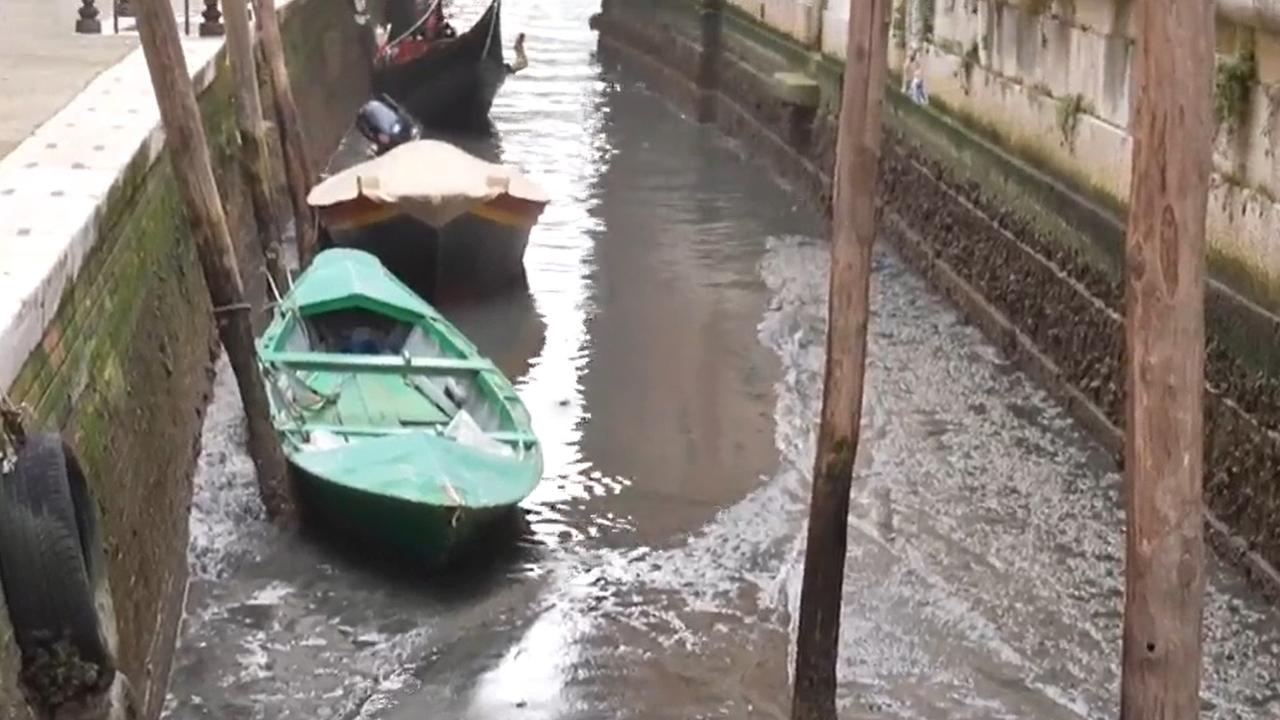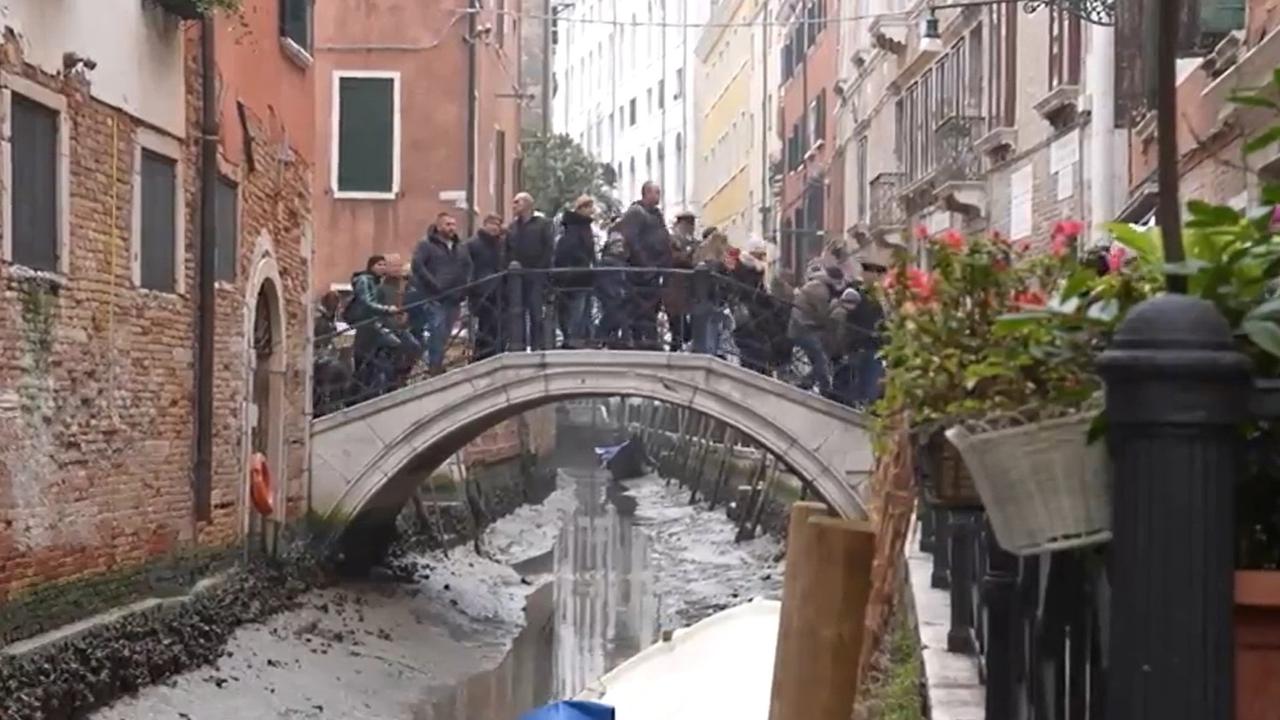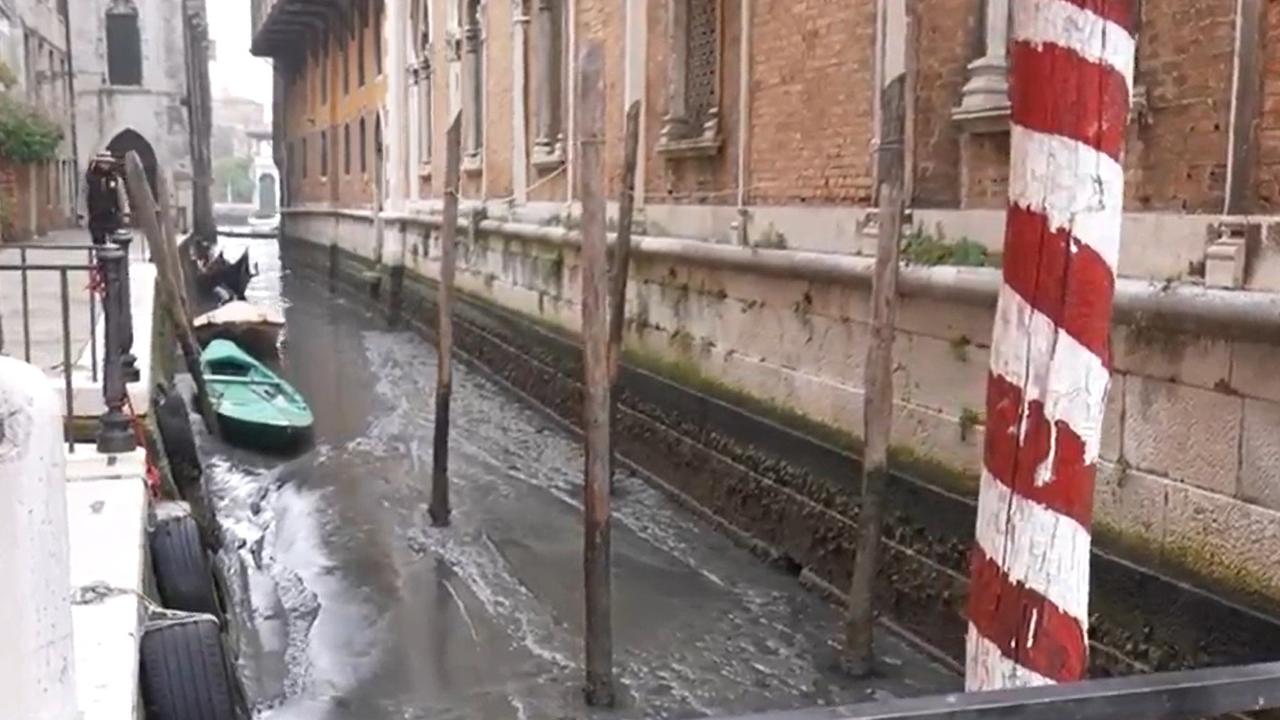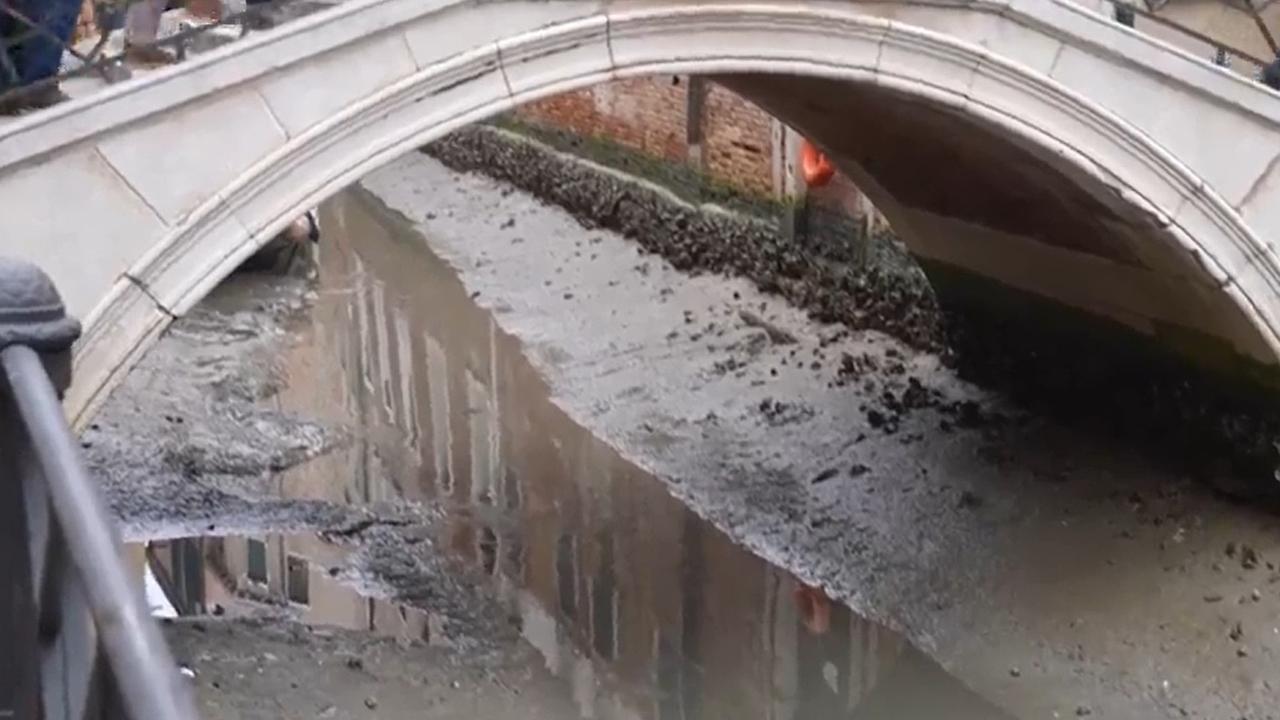
This article is more than
3 year oldThe romantic waterways in Venice have been reduced to nothing but mud as the beloved Italian city experiences freak low tides.
Photos reveal the beloved Italian city of Venice reduced to a squelching quagmire following a freak low tide in the waterways.
Venice, known for its world-famous gondolas and water taxis, is usually faced with flooding.
But unusually low tides has caused significant disruptions to daily life with water buses and other vessels unable to navigate the city’s shallow waterways for days.
Pictures show colourful boats sitting abandoned in their moorings as the city’s romantic waterways are filled with mud.


Water ambulances have also been grounded and are unable to reach those in need.
Italy — like other European countries — is facing a new round of severe drought conditions after a dangerously dry summer led to a national emergency, Bloomberg reports.
The low tide has caused fish to die en masse and has revealed the ancient foundations of many buildings.


The freak water levels have also disrupted the city’s carnival, which has drawn more than 100,000 tourists to the city, now unable to navigate its historic canals.
Officials say water levels in Venice have dropped to 65 centimetres (26 inches) below the average sea level.
Alvise Papa of the Tide Forecasting Centre told local media: “It has been at least 15 years since we have recorded such a prolonged duration.”
In 2005, water levels remained at more than 50 centimetres (20 inches) below sea level for 48 hours.

Weather experts blame the phenomenon on an anticyclone wind system that is temporarily stuck above the city.
It is expected that the canals of Venice will remain dry until the end of February.
The anticyclone lingering over northern Italy has also led to smog in the cities of the Po Valley and has put strain on the agricultural sector.
The Po, Italy’s longest river which runs from the Alps in the northwest to the Adriatic has 61 per cent less water than normal at this time of year, the Legambiente environmental group said in a statement.
Last July, Italy declared a state of emergency for areas surrounding the Po, which accounts for roughly a third of the country’s agricultural production and suffered its worst drought for 70 years, Reuters reported.
In September, the popular destination was hit by seasonally high waters, forcing tourists to sit at cafes barefoot, with others wading through the famous St. Mark’s square wearing gumboots, or not footwear at all.